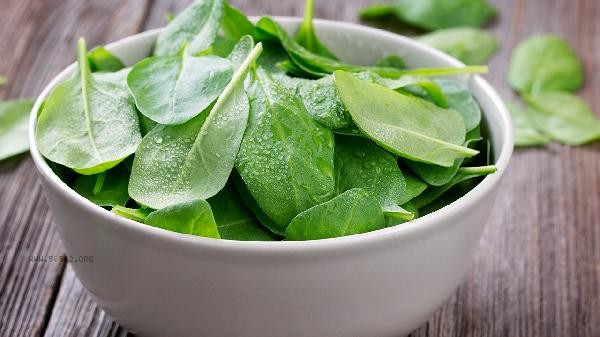Moderate consumption of water spinach usually does not lead to diseases, but improper handling or special constitution may cause gastrointestinal discomfort, parasitic infections, and other problems. The main pathogenic factors that water spinach may carry include pesticide residues, parasite eggs, calcium oxalate deposition, allergic reactions, and nitrate accumulation.

1. Pesticide residues
During the cultivation of water spinach, pesticides may be used, and direct consumption without sufficient cleaning may lead to pesticide poisoning. Symptoms include acute gastroenteritis symptoms such as nausea, vomiting, abdominal pain, and diarrhea. It is recommended to rinse with running water and soak, or choose organically grown water spinach.
2. Parasitic eggs
Aquatic water spinach is prone to attaching parasitic eggs such as liver flukes and ginger worms, which may cause parasitic diseases when eaten raw or undercooked. Infected individuals may experience symptoms such as fever, liver pain, and malnutrition. When cooking, heat thoroughly until the leaves become soft.
3. Calcium oxalate deposition
Water spinach contains a high amount of oxalic acid, which can easily form calcium oxalate crystals when combined with calcium in the body. Long term consumption in large quantities may increase the risk of kidney stones, especially for those with a history of stones who need to control their intake. Blanching treatment can reduce some oxalic acid content.

4. Allergic reactions
A small number of people are allergic to specific proteins in water spinach, and may experience allergic symptoms such as skin itching and oral swelling after consumption. Severe cases may lead to anaphylactic shock, and such individuals should avoid consuming cruciferous vegetables.
5. Nitrate Accumulation
Improper storage of overnight water spinach may convert nitrate into nitrite, and excessive intake can affect blood oxygen carrying capacity. Symptoms include bluish purple lips and difficulty breathing. It is recommended to eat it immediately and avoid storing it overnight.

For daily consumption of water spinach, it is recommended to choose fresh and tender leaves, soak them in salt water before cooking, and thoroughly clean them. Individuals with renal insufficiency should control their intake frequency, while those with allergies should undergo a small amount of testing on their first attempt. Pairing with ingredients rich in vitamin C can promote iron absorption and avoid consuming large amounts with high calcium foods. When abnormal reactions such as persistent abdominal pain or rash occur, seek medical attention promptly to investigate the cause.









Comments (0)
Leave a Comment
No comments yet
Be the first to share your thoughts!